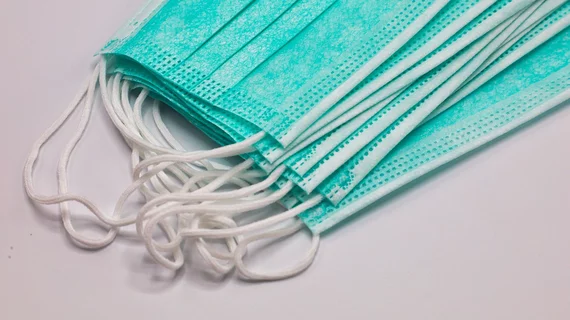Nonhospital physician practices desperately need PPE help before reopening, advocates warn feds
Nonhospital physician practices that have been closed for weeks desperately need help procuring protective equipment and other supplies, advocates recently warned the White House.
Many states are now beginning to lift restrictions to allow docs to perform delayed cancer screenings, elective procedures and other nonurgent care. While the federal government has, understandably, directed supplies toward COVID hotspots and those treating patients with the disease, this has left many doc practices shut out, the American Medical Association wrote in a May 28 letter to Vice President Mike Pence.
They’re asking the federal government to aid these providers in their procurement by providing local points of contact, listing “legitimate” manufacturers that may be equipped to help, or dedicating additional resources toward providers.
“As nonhospital physicians return to work and reopen practices, the need for these supplies is rapidly expanding to these other care sites,” wrote James Madara, MD, CEO and executive VP of the association. “We are hearing significant and growing concern from our member physicians that they cannot secure needed supplies to safely reopen and that they are unsure where to turn for further guidance and assistance,” he continued later.
Besides personal protective equipment such as masks and gowns, the AMA is also asking for help with other infection-control items such as disinfectants and hand sanitizer. They’re suggesting that the federal government launch a clearinghouse—on a regional, state or local level—that would provide all of the essential info on equipment in one easy-to-access location.
Madara said doc groups are in a precarious position right now, and the AMA is ready to work with the federal government to help protect them.
“Infection within a physician practice runs the risk of not only spreading COVID-19 to additional staff and patients, but further threatening the long-term financial viability of practices already under significant strain after extended closures,” he wrote.
PPE shortages have been a critical issue for imaging providers since the start of the pandemic. The American College of Radiology, Society of Nuclear Medicine and Molecular Imaging, and several other interest groups asked the president for help on this front back in March.

